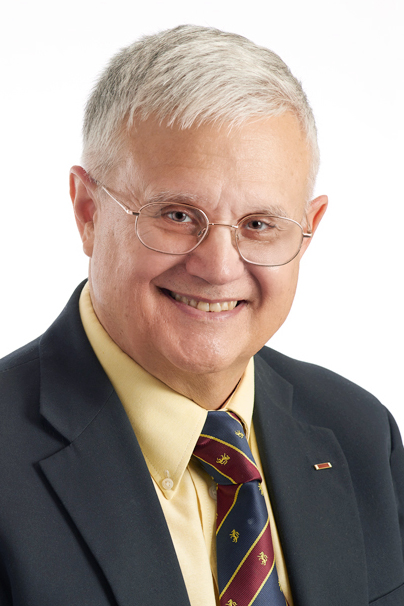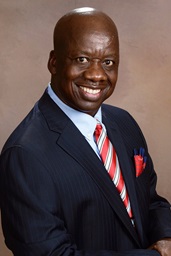
Photo by Timothy H. Wright.
To that I add an amen. Wesley’s “Catholic Spirit” selections, from which he quoted, strengthen United Methodists theologically when serving in intriguing settings. One of my assignments involved pastoral supervision for ministry to Marines and families from Hawaii to Africa. My “cabinet” consisted of a rabbi, a priest, a Mormon, a Southern Baptist, an Orthodox Presbyterian, a charismatic United Methodist and a Greek Orthodox priest. Diversity, anyone?
United Methodist theology affirms clergy integrity amid differences. I noticed in the military some groups engaged in cooperative ministry reluctantly, even resentfully. United Methodist chaplains embrace cooperation consistent with the Wesleyan claim to be part of the universal church, but not holding the Holy Spirit by the throat for ransom lest others not of our name be blessed.
Commentaries
Our theology offers perspective to stay mellow when others would simply melt. One Sunday on Guam, I led the morning Protestant communion service. I used grape juice, but in deference to worshippers from Episcopal and Lutheran traditions, I also had a chalice of wine available. After the service, the hard-cider crowd came to me and asked what was in the chalice. I asked my enlisted clerk, who replied dryly that with the sacramental wine empty, he broke into his private stash of Harvey’s Bristol Crème. No wonder the Lutherans circled around for seconds!
I offer this insight from 33 years of ministry in the Navy, Marine Corps and Coast Guard, 28 of those years on active duty. A long-standing slogan for military chaplains is “Cooperation without Compromise.” Chaplains cooperate and help one another succeed for the sake of service to all. What chaplains must not do is to compromise core convictions. What the military must not do is to ask or expect chaplains to compromise those convictions. That would reduce chaplains to generic clerics procuring favors for promotion and perks, lap dogs to power rather than speakers of truth.
One of the most memorable exercises during a nine-month training process for Navy senior supervisory chaplains involved writing a paper on the topic: What would require me in conscience to resign my military commission. Giving up the rank, the pay, the pension and the perks is a huge deal, but Chaplain Corps leaders realized that chaplains who cannot articulate core convictions and the boundaries of informed conscience are sitting ducks for the compromise of integrity.
Here is my concern. The well-intended One Church Plan requires traditional clergy and laity to compromise conscience insofar as the historic Christian doctrine of marriage is concerned. Even though the plan doesn’t require clergy to officiate at a same-sex marriage, many clergy may find they cannot be part of a denomination that blesses behaviors "incompatible with Christian teaching." Just as chaplains must know their ethical boundaries, clergy may resign their membership in a church they no longer ethically can serve, even at great emotional and financial cost.
The definition of marriage as a covenant between a man and a woman reaches the threshold of core conviction in the global church; thus, many in the global church can only remain in a One Church denomination by the compromise of conscience through passive acceptance of behaviors contrary to God’s intent.
Many civilian clergy and laity will choose to ‘resign their commission’ rather than accept revision of the nature of Christian marriage. If you are married and think the doctrine of marriage is not a core Christian teaching, see what happens when your spouse asks if you are faithful and your reply is “frequently.”
This follows the 1844 precedent when Methodism split rather than shift existing church teaching that viewed the practice of slavery as incompatible with Christian teaching. The denomination refused demands to modify that teaching, even on the accurate grounds that equally devout Methodists were not of one mind on the issue. The church rejected the argument that no pastor who felt slavery to be wrong would be forced to own slaves or bless slavery, while those who found the practices morally acceptable should be free to do them.
Note that disobedience is not an alternative. I received word that a Naval Reserve chaplain, called to several months of active duty to serve an isolated overseas base, was greeted on her first Sunday at chapel by a walk-out led by a couple of other chaplains who rejected the ordination of women. Some could (and did) argue that Christianity is not of one mind on the issue of ordaining women. They said the issue was not core Christian teaching, that the Navy could win wars without female chaplains, and that the female chaplain (who was exceptionally gracious in modeling Christ throughout the episode) just would need to suck it up as the price of service.
Wrong. Any military, or denomination, that permits pick-and-choose obedience to its regulations is destined to lose any war it fights, literal or spiritual. Other chaplains from traditions that do not ordain women shared my concern at what happened and backed me as senior supervisor to remind these modern sons of Korah that they were free to exclude women from ordained ministry in civilian settings but not in the Navy Chaplain Corps. Professional repentance followed. Ordained women in the military is policy, and a precedent of selective obedience to military policy is a non-starter. Shared obedience nurtures the trust in which a truly collaborative spirit can thrive. Honorable resignation was, and is, the alternative to disobedience.
Having taught and written on combat ethics and the role of chaplains in morally conflicted situations, I know that selective obedience to the Rules of Engagement, Geneva convention protocols, or the Uniform Code of Military Justice is a showstopper — these are not candidates for selective application depending on setting, situation or ZIP code. The One Church Plan appears to be a sincere effort to align disobedient bishops, clergy and congregations, who for conscience’s sake defy existing teaching, into a new paradigm that moves or erases the boundaries of obedience. This is a bad idea and a worse precedent, for shared obedience, not shared agreement, births trust.
I know all the proposals at GC2019 have good and bad points to ponder. As a retired Navy chaplain, I remain grateful for the countless examples of positive collaboration with those with whom deep disagreements existed. I know that where there are two Methodists, there are three opinions, and that those who disagree are not demonic. I remain grateful for healthy “cooperation without compromise,” expressed through a shared obedience that nurtures authentic trust among colleagues who do not think alike. I remain grateful for the Wesleyan heritage, a living inheritance of the gospel, that guided me in ministry to the military and that will guide the church in the raucous and challenging days to come.
Phillips is an elder in the Illinois Great Rivers Conference and a retired captain in the Chaplain Corps of the U.S. Navy. He is also a delegate to the 2019 General Conference.
Like what you're reading? Support the ministry of UM News! Your support ensures the latest denominational news, dynamic stories and informative articles will continue to connect our global community. Make a tax-deductible donation at ResourceUMC.org/GiveUMCom.



